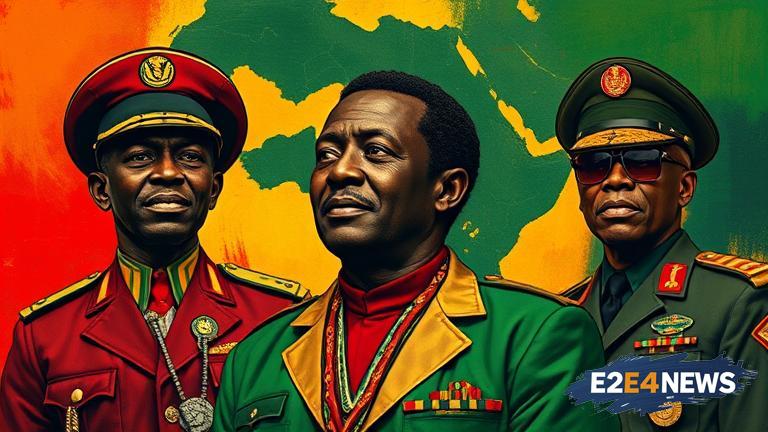Julius Malema, the leader of the Economic Freedom Fighters (EFF) in South Africa, has been a vocal advocate for African unity and an end to neo-colonialism. In a recent address, Malema emphasized the need for a single African president, parliament, and army to achieve this goal. He believes that a unified African government would be better equipped to address the continent’s economic and social challenges. Malema’s proposal is not new, as the idea of a unified African state has been discussed by various leaders and organizations over the years. However, his passionate advocacy has brought renewed attention to the issue. Malema argues that the current system of individual nation-states in Africa is a relic of colonialism and hinders the continent’s ability to compete globally. He cites the example of the European Union, which has a unified parliament and currency, as a model for African integration. Malema’s vision for a single African president would involve the election of a leader who would represent the entire continent, rather than individual countries. This leader would be responsible for making key decisions on trade, security, and economic development. A unified African parliament would provide a platform for representatives from each country to come together and discuss issues of common interest. Malema also believes that a single African army would be more effective in addressing regional security threats and protecting the continent’s interests. He points to the example of the African Union’s peacekeeping missions, which have been successful in stabilizing conflict zones. Despite the challenges and complexities involved, Malema remains optimistic about the potential for African unity. He believes that the benefits of a unified government, including increased economic cooperation and improved security, would outweigh the costs. Malema’s proposal has been met with both support and skepticism from various quarters. Some have praised his vision and commitment to African unity, while others have raised concerns about the practicality and potential risks of such a system. The idea of a single African president, parliament, and army is not without its challenges, including the need for significant institutional and economic reforms. However, Malema’s advocacy has sparked a renewed debate about the future of African integration and the potential for a more unified and effective continental government. As the discussion continues, it is clear that Malema’s vision for a single African president, parliament, and army has the potential to shape the future of the continent. With its rich natural resources and growing economies, Africa has the potential to become a major player on the global stage. Malema’s proposal offers a compelling vision for how the continent can achieve this goal and promote economic independence and security. The response to Malema’s proposal has been mixed, with some countries expressing support for the idea of African unity, while others have raised concerns about the potential loss of sovereignty. However, Malema remains committed to his vision, believing that the benefits of a unified African government would outweigh the costs. In conclusion, Malema’s advocacy for a single African president, parliament, and army has sparked a renewed debate about the future of African integration. While there are challenges and complexities involved, his vision offers a compelling potential for promoting economic independence, security, and unity across the continent. As the discussion continues, it is clear that Malema’s proposal has the potential to shape the future of Africa and promote a more unified and effective continental government.
